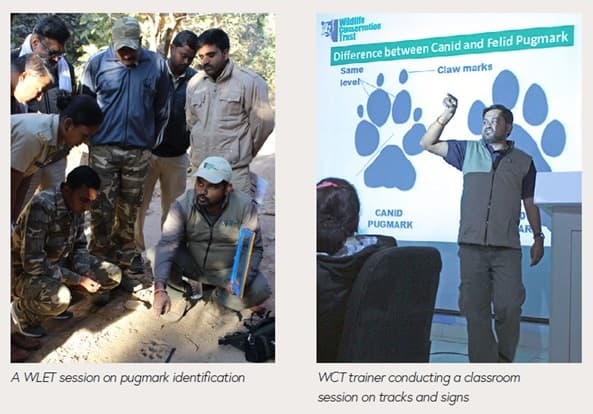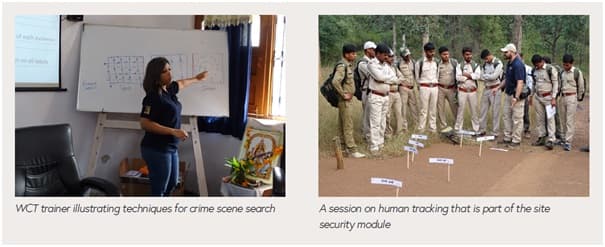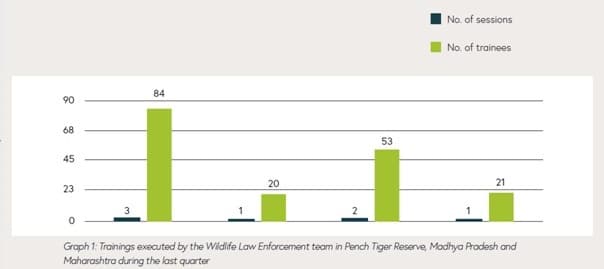WCT’s Wildlife Law Enforcement Training (WLET) team has developed an integrated training programme on ‘Law Enforcement, Evidence Collection and Site Security’ (LEECSS), and ‘Module on Offense Reduction and Enforcement’ (MORE) for the frontline forest staff in the Central Indian Landscape.
The key aim of this training is to address the shortcomings in enforcement responses to wildlife crime, leading to poor conviction rates. These include:
- Weak implementation of the provisions of the Wild Life (Protection) Act, 1972
- Poor evidence collection practices
- Improper crime scene processing methodologies
- Insufficient legal case documentation

WCT’s LEECSS programme provides a fresh perspective on these issues and outlines simple, easily implementable tools to help improve conviction rates.

Besides the LEECSS module, the team has also developed an advance programme called ‘Module on Offense Reduction and Enforcement’ (MORE), which focuses on fine tuning and ingraining concepts through a hands-on approach. The module builds capacity in crime scene searches, evidence collection & sealing, and more efficient ways of presenting and defending cases.

Milestones
- Over 12,000 forest officers have been trained through 180 training sessions.
- WCT’s WLET programme is now part of the core curriculum of the state forest training institutes of Madhya Pradesh and Maharashtra.
- Entire frontline forest staff of Pench Tiger Reserves (Madhya Pradesh and Maharashtra) has been trained.
Header image © Dr. Anish Andheria

